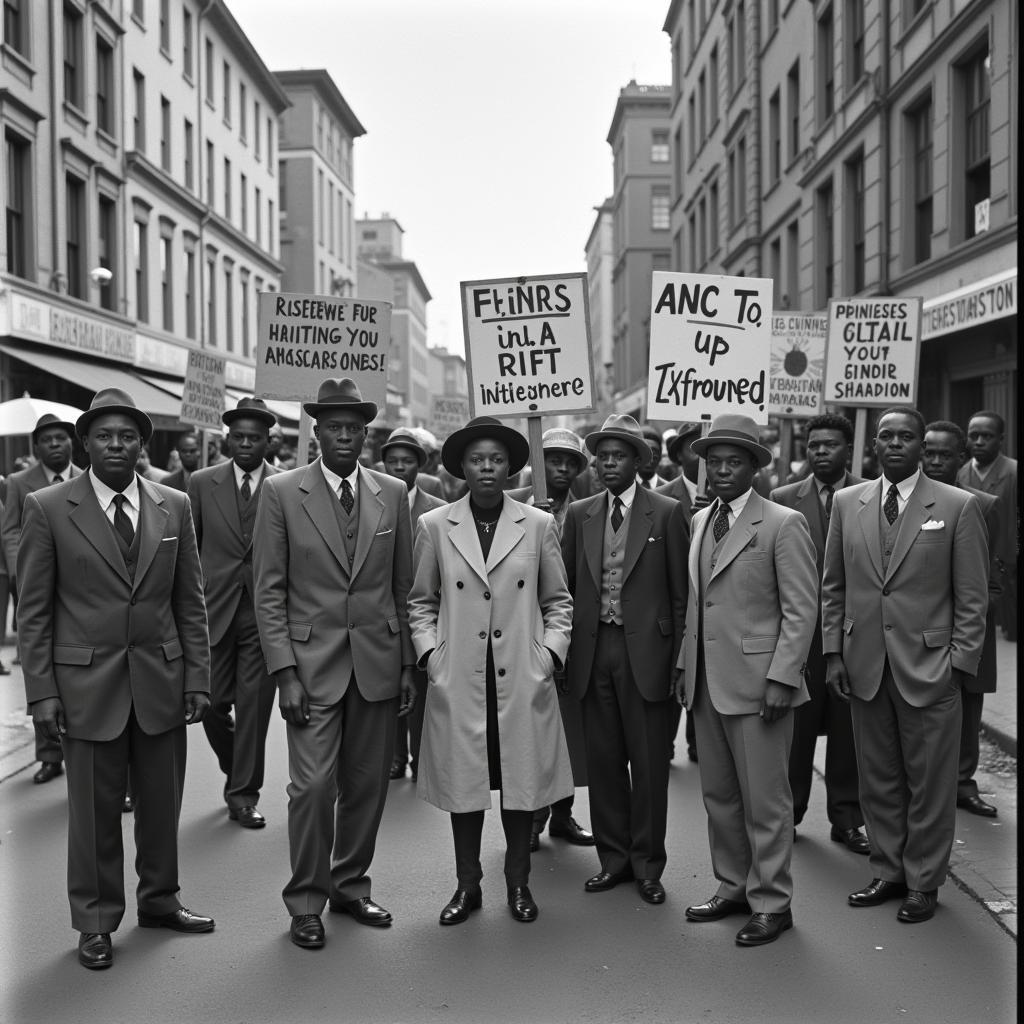Celebrating African National Congress Foundation Day
The African National Congress Foundation Day, celebrated annually on January 8th, marks a pivotal moment in South African history. This day commemorates the formation of the ANC in 1912, an organization born from the urgent need to unify and represent the voices of Black South Africans against the oppressive system of racial segregation and discrimination. The ANC’s journey, from its humble beginnings as the South African Native National Congress, to its leading role in dismantling apartheid, is a testament to the enduring human spirit in the face of injustice.
The early 20th century witnessed the systematic disenfranchisement and marginalization of Black South Africans. Following the Boer War, the Union of South Africa was established in 1910, solidifying white minority rule and further entrenching discriminatory practices. Recognizing the perilous path the nation was on, a group of visionary leaders, including Pixley ka Isaka Seme, John Dube, and Sol Plaatje, gathered in Bloemfontein to establish an organization that would champion the rights and aspirations of the African people. This marked the birth of the South African Native National Congress, later renamed the African National Congress in 1923. Their initial aim was to secure a voice for Black South Africans within the existing political framework, advocating for full citizenship rights, land ownership, and equal opportunities.
The Early Years of the ANC and its Evolving Mission
The early decades of the ANC were marked by peaceful resistance, petitions, and appeals to the conscience of the ruling minority. However, the government’s response was one of increasing repression, culminating in the implementation of the apartheid system in 1948. This marked a turning point in the ANC’s strategy. Faced with escalating state violence and the systematic dismantling of any semblance of equality, the organization adopted a more militant approach. The 1950s saw the launch of the Defiance Campaign, a mass mobilization of non-violent civil disobedience, which saw thousands of activists, including Nelson Mandela, arrested. This era solidified the ANC’s role as the leading force in the struggle against apartheid. You can read more about South African leaders on our website.
 ANC Foundation Day: Early Activists
ANC Foundation Day: Early Activists
The Shift to Armed Resistance and the International Struggle
The Sharpeville Massacre in 1960, where police opened fire on peaceful protestors, killing 69 people, was a watershed moment. The ANC, along with other liberation movements, was banned, and many of its leaders were imprisoned or forced into exile. This period witnessed the formation of Umkhonto we Sizwe (MK), the ANC’s armed wing, marking the organization’s transition to armed resistance. The international community also played a crucial role, with increasing pressure on the apartheid regime through sanctions and boycotts. The struggle against apartheid became a global cause, with activists around the world rallying in support of the ANC and the South African people. Learn more about South African politics in our dedicated article.
From Imprisonment to Presidency: The Triumph of Hope
The release of Nelson Mandela in 1990, after 27 years of imprisonment, signaled the beginning of the end of apartheid. This event, along with the unbanning of the ANC and other liberation movements, paved the way for negotiations that culminated in the first democratic elections in 1994. The election of Nelson Mandela as South Africa’s first Black president was a momentous occasion, a symbol of hope and reconciliation for a nation deeply scarred by decades of racial division. Learn more about African president Nelson Mandela on our website. The ANC’s journey, from its formation on that January day in 1912, to its ultimate triumph over apartheid, is a story of courage, resilience, and the unwavering pursuit of justice.
The 1970s saw significant advancements in the African American Civil Rights movement. You can read more about 1970s African American Civil Rights on our website.
Why is African National Congress Foundation Day Important?
African National Congress Foundation Day is important because it commemorates the beginning of the organized struggle against apartheid in South Africa.
How is ANC Foundation Day Celebrated?
ANC Foundation Day is celebrated with various events, including political rallies, speeches, and cultural performances, all aimed at remembering the sacrifices made in the fight for freedom.
Conclusion
African National Congress Foundation Day is not merely a historical marker; it is a living testament to the power of collective action, the enduring human spirit, and the triumph of hope over adversity. It serves as a reminder of the long and arduous journey towards freedom and equality, and a call to continue the fight against all forms of injustice, wherever they may exist. The ANC Foundation Day reminds us that the struggle for a just and equitable world is ongoing, and that the legacy of the ANC continues to inspire generations to strive for a better future.
FAQ
- What does ANC stand for? ANC stands for African National Congress.
- When was the ANC founded? The ANC was founded on January 8, 1912.
- Why was the ANC formed? The ANC was formed to unite Black South Africans and fight for their rights against racial segregation and discrimination.
- Who were some of the key figures in the ANC? Key figures include Nelson Mandela, Oliver Tambo, Walter Sisulu, and Albert Luthuli.
- What is the significance of Sharpeville Massacre? The Sharpeville Massacre led to the banning of the ANC and a shift towards armed resistance.
- When were the first democratic elections held in South Africa? The first democratic elections were held in 1994.
- Who was the first Black president of South Africa? Nelson Mandela was the first Black president of South Africa.
You can also find information about African American activists of the 19th century on our website.
If you need any assistance, please contact us:
Phone: +255768904061
Email: kaka.mag@gmail.com
Address: Mbarali DC Mawindi, Kangaga, Tanzania.
We have a 24/7 customer service team.

